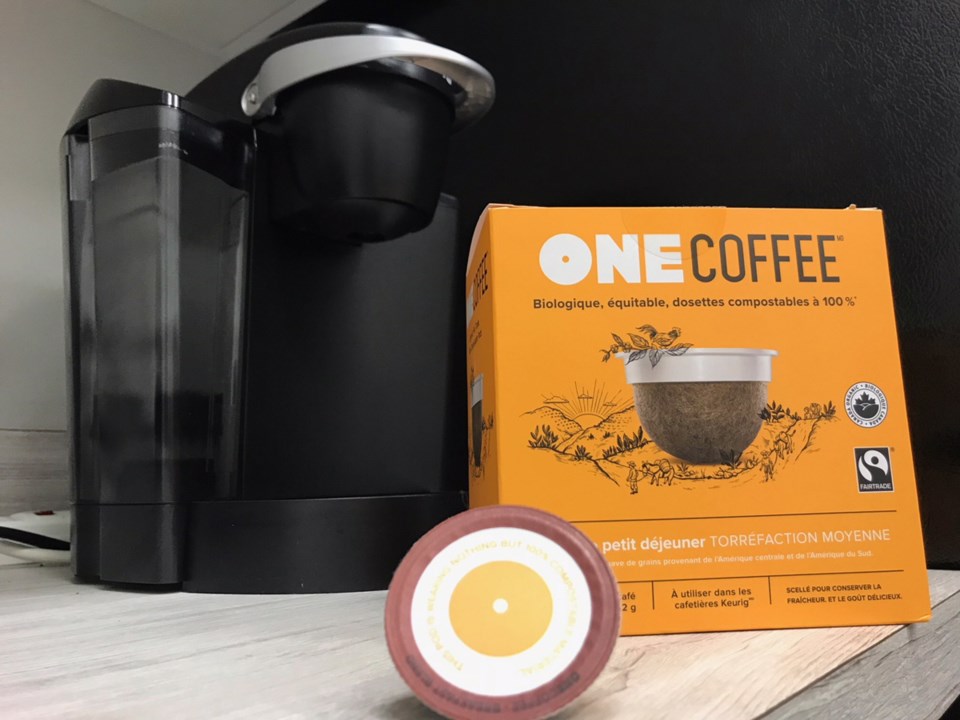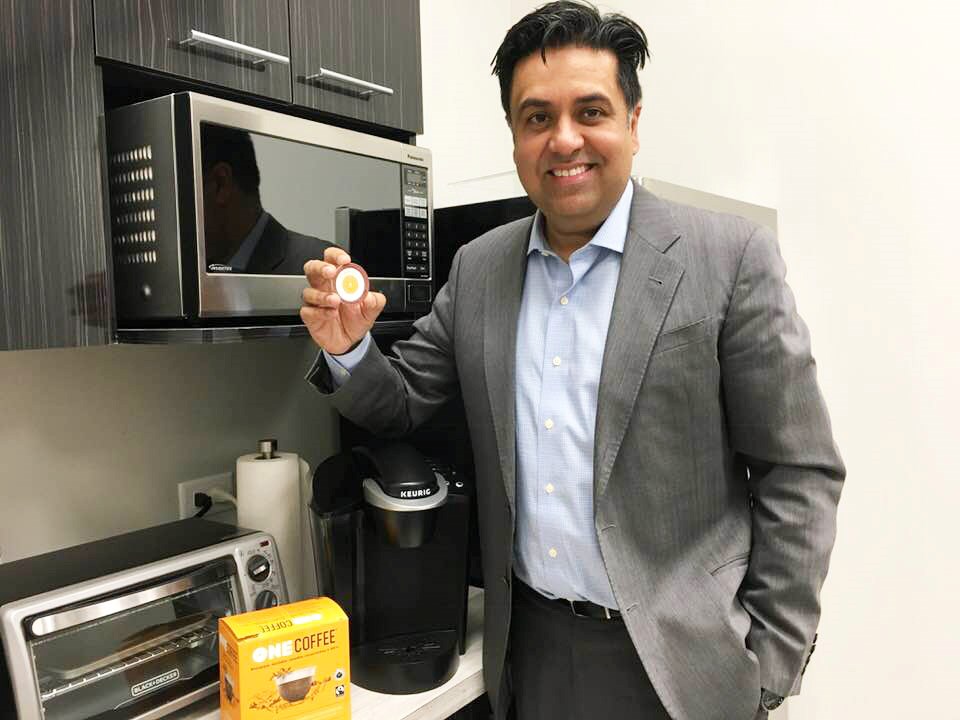Single-use coffee pods have long been criticised for clogging landfill sites but Richmond-Queensborough MLA Jas Johal and a local coffee company are brewing up an alternative.
Earlier this month, Johal introduced a private member’s bill which would ban all sales of non-compostable, single-use beverage pods starting in 2022. It has now been given a first reading.
The bill also demands that all compost facilities in B.C. accept compostable plastics as green waste, which is not currently the case.
Johal said he was inspired to put forward the bill by a Richmond company, Canterbury Coffee (owned by OneCoffee), which this year created fully compostable coffee pods.
“It’s wonderful that we have a Richmond business at the forefront of this,” said Johal.
“The technology is now available for this to happen. It’s not like you want to force this on companies that are brand new to it.”
While some big coffee pod companies, such as Keurig K-Cups, are working towards making their products fully recyclable, Johal said Canterbury Coffee is already ahead of the game.
“I think the ultimate goal for everything you do in society should be getting to a point where we limit plastics,” said Johal.
Part of the current problem with recyclable coffee pods is the complexity of disassembling the pods into separate parts and cleaning them, which makes recycling unappealing for many consumers.

Canterbury Coffee’s fully compostable coffee pods consist of multiple components, explained Shalaine Chu, the company’s manager of communications and public relations.
The ring and mesh are made of plant-based plastics which break down easily into compost, and the lid consists of paper and bioplastic cement.
The whole pod can be decomposed in a commercial composter in five to eight weeks, Chu added.
However, the real challenge right now, Chu said, is that most facilities in Metro Vancouver don’t handle compostable plastics. As a result, many of those compostable pods end up in landfill sites.
Andrew Marr, director of solid waste planning at Metro Vancouver confirmed that while some companies take compostable plastics, others don’t.
“It’s up to them to decide, based on their individual processing technologies, operational needs and business plans,” said Marr.
“And certain compostable plastics require different time or temperature to be broken down. So a compostable plastics that is acceptable to one composting facility may not be acceptable in another.”
Johal hopes that, if his bill is passed, all facilities will be forced to update their technology so all compostable plastics can be accepted.
“Not just compostable coffee pods, but plastic bags, plastic cutleries, all sorts of those things. The more we can do to eliminate plastics from our environment, the better it is for society,” said Johal.
“It’s four years before the bill, if passed, would come in effect. That should give the market enough time to adapt.”
Regardless, Canterbury Coffee will continue producing its compostable coffee pods at a competitive price, despite the higher cost of bioplastics manufacturing.
“We are trying to create demand, so that more and more people will use the products. As a company, we also want other companies to use compostable plastics, because the more people use it, the more costs go down,” said Chu.
“I’m confident that we are going to move forward, I’m confident that compostable plastics is the way to go, and I’m confident that it is a big enough issue to address.”



